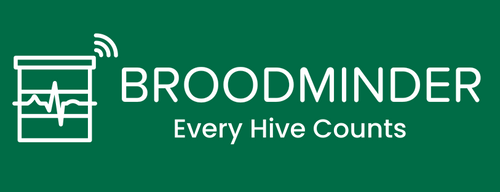BroodMinder Scientific Partnerships
Contribution to science is ingrained in our mission. The BroodMinder team is united by the belief that by performing simple, uniform measurements on thousands of beehives worldwide, the beekeepers and scientists will gain insights into hive distress. As a result, the global community will be able to develop interventions to improve beekeeping outcomes. This is at the heart of what we mean by “citizen science” at BroodMinder.
As we start measuring various bee health parameters, we raise new questions and seek answers to those questions. The fact is that most of what we do at BroodMinder is not in the books, some is on scientific papers, and often we find ourselves pushing research forward in an attempt to achieve an outcome that could be helpful to the end-user beekeeper. Then we roll those outcomes into updates or new versions of our hardware.
Developing new cutting-edge beehive monitoring technologies is an important part of what we do. In this process, we partner with leading research centers, universities, and beekeepers. Here is a list of topics that we’re currently dealing with in the research field.
Colony health and "MiteMinder"
One big threat for bees is the parasitic mite Varroa destructor. The question is not whether there are mites in your hive, but how many there are! Therefore, managing mites starts with counting them. And this is a time-consuming duty for any beekeeper.
Counting mites is a complicated job. They are very small, measuring less than 1 mm across, and they often hide on parts of bees that render them nearly invisible. So we asked ourselves what if we counted them in an automated way?
To be able to address these complicated issues, we’re teaming with Purdue University to develop the innovative MiteMinder technology. Below you can see one of the first pictures from this scientific adventure (and you should be able to find the mite that hides in one of those bees).

Pollination and resource management
Our second field of research is around resource availability. This starts with understanding how regional weather affects the blooming calendar for various plants. It follows up with the evaluation of nectar flow probability and then forecasts hive activity in this specific context.
Understanding those aspects is beneficial for any beekeeper taking care of bee health. But it also provides helpful insight for agricultural producers who wish to improve their crop management.
To do this work, we team up with professional beekeepers and crop growers with a long track record in cultivating different crops like rapeseed, kiwi or sunflower. We monitor their yards and aggregate multiple datasets to determine what happens over specific conditions. Our analysis helps crop producers to adapt the operations according to the observed dynamics.

Among our scientific partners in this area, we can cite: CY Tech Engineering school and the laboratory of applied mathematics (LMAP) at Université de Pau et des pays de l’Adour (UPPA) in Pau, France.
We invite you to learn more about our recent scientific partnerships, led by the US and French teams, watching the videos below:
🌍 On January 19th, 2022, at Mini-Conference organized by the US Western Apicultural Society, Rich Morris and Theo Hartmann covered the interesting topic about temperature profiles surrounding swarming events, as seen by temperatures and weight scales in the hive. Watch video
🌍 In 2020 French team Mellisphera (previous name for BroodMinder Europe) led a collaboration with CY-Tech Engineering school in Pau, France. 70 students in IT engineering and mathematics were involved in building dynamic analytical models of beehive colonies, thanks to installing a beehive with our integrated beehive monitoring solutions. Watch video
🌍 In October 2020, Mellisphera and BroodMinder took part to the 4th Bee & Hive Monitoring International Online Conference. This event brought together all the worldwide actors working on new technologies to ensure better monitoring of bees and colonies. Mellisphera’s presentation focuses on the possibilities offered by its online beehive monitoring platform: it allows to quickly integrate the results of scientists' research translating them into practical guidance for beekeepers in the field. This innovative approach helps to improve beekeeping outcomes. Watch video

